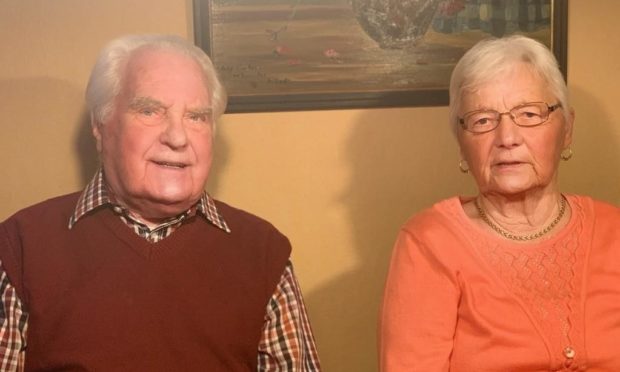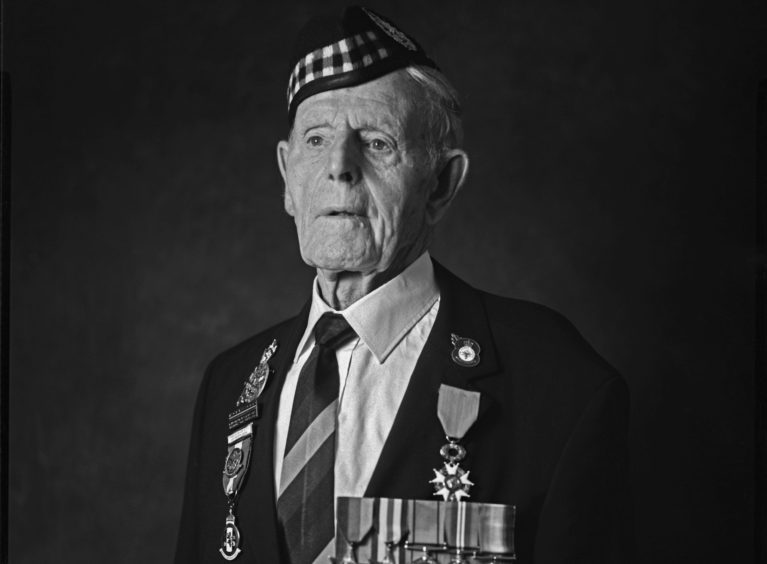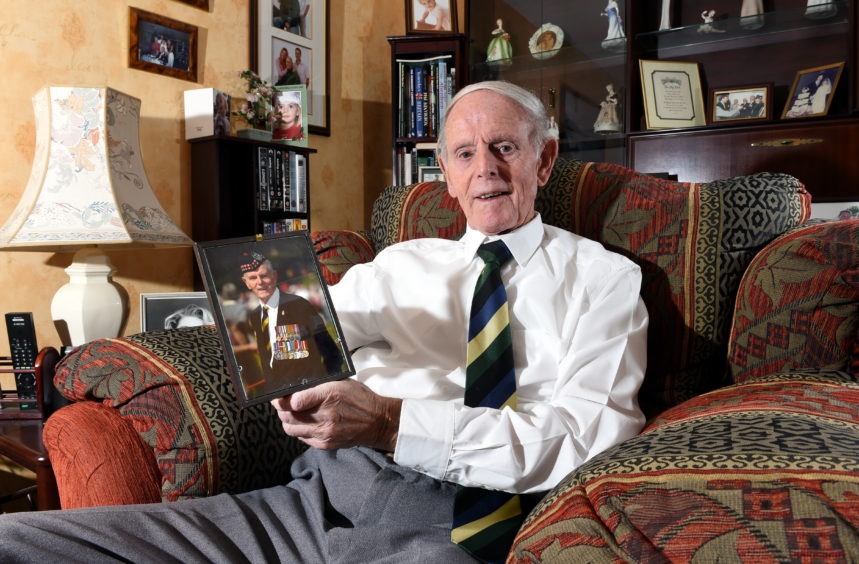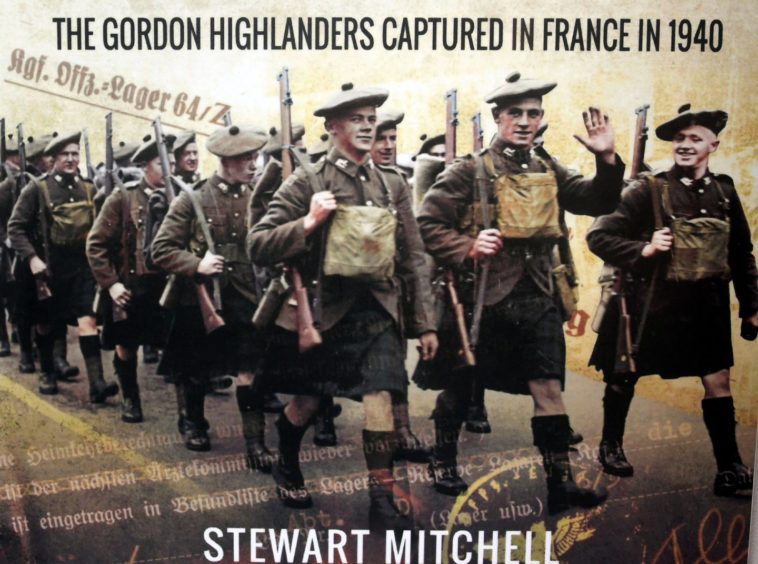They were two men on opposite sides of the great divide as conflict raged across the globe in the 1940s.
Yet now, more than 70 years later, a former Second World War veteran and Iron Cross recipient has made a donation to the Gordon Highlanders Museum in Aberdeen after forging a close friendship with Aberdeen soldier Jim Glennie who was incarcerated in a German prison camp.
Karl Hunold and his wife, Elfriede, travelled to Scotland several years ago and were impressed by the commemorative work which was being done to honour the fallen victims of many different wars by staff at the Granite City attraction.
And although the museum has been closed because of the Covid pandemic for most of the last 12 months, its executive chairman, Colonel Charlie Sloan, has praised the Hunolds for their gesture and highlighted the spirit of reconciliation and “the ties that bind” between former enemies.
A friendship born from adversity
Mr Hunold, 94, whose life was saved by Gordon Highlanders after he was wounded, and his family, have never forgotten what happened during the conflict and have made a “generous” donation to the regimental museum, which has become one of the region’s most popular visitor attractions.
As an 18-year-old paratrooper in Fallschirmjäger Regiment 6, the youngster was seriously wounded outside the German town of Rees, which was being attacked by the 5/7th Battalion of the Gordon Highlanders.
Stuck in a ditch, in desperate circumstances, and unable to move from severe leg wounds, Mr Hunold was convinced that he was going to die – but a short time later, a Gordon Highlanders scout car found him and rushed him to a field hospital, where surgery was able to save his legs.
At the time, he was unaware that it was the Gordon Highlanders who had helped him in his hour of need.
But after he and his family carried out diligent research into the matter, Mr Hunold’s stepson, Roland Goerz, a serving officer in the Bundeswehr, uncovered their identity, and they were determined to show their gratitude.
A journey to say thank you 70 years later
Shortly afterwards, Karl, who was at that stage nearly 90, visited the museum in 2016 along with his wife Elfriede, his stepson Oberst Leutenant Roland Goerz and his wife Angelika Blahut-Goerz as a way of saying “thank you” to the Scottish regiment which had rescued him all those years ago.
It was an evocative journey to Scotland which eventually led to the two old warriors exchanging wartime memories and joining together with the message that the world had to learn from what had happened in the 1940s.
Mr Glennie, 94, said: “Although we can’t speak to each other directly because of the language barrier, we can both understand each other because of what we have been through.”
And Mr Hunold responded: “Being here in Aberdeen, and meeting Jim in the museum of the Highlanders who saved my life, brings very positive emotions.
“I hold the Gordon Highlanders in very high regard in my memory, because they treated me very well.
“All those years ago, we were enemies because of where we were. But now, we would both consider each other as friends.”
The wounds have healed as the world fights Covid
Mr Glennie, a D-Day veteran, was also 18 when he was wounded and captured in France, but he was treated properly and with dignity by his captives for the remainder of the hostilities.
The Turriff man, who was called away to serve with the Highlanders in 1943, was involved in the D-Day landings on June 6, 1944.
But, just a few weeks later, he was shot in the arm and taken to the Stalag 4B PoW camp.
He was eventually liberated by American soldiers in 1945 and returned to Aberdeen – and for more than 20 years, has volunteered at the museum.
The bond which he established with his one-time adversary has become an enduring one and, realising the negative impact which Covid-19 would be having on the museum and its many staff and volunteers, Mr Hunold and his family decided that they wanted to help.
As he said in a poignant message: “We all think very often about the Gordon Highlanders, the museum and its social function as a meeting point for all the regiment’s veterans and their relatives.
“We feel sad about the fact that, in Covid-19 times, it must be very hard for you all to cope with the effects of the virus and the restrictions caused by it.
“We send our best wishes to you all and your families. You are in our hearts.”
Borders are closed, but ties remain
Col Charlie Sloan has been moved by the fashion in which the Hunold family have continued to pledge support for the museum.
They may not be able to travel to the site for the foreseeable future, but it’s clear they will be made very welcome once lockdown restrictions are lifted.
Col Sloan said this week: “We were deeply touched by the kindness which has shown by Karl and his family.
“This last year has been very difficult for the museum, for its staff and its volunteers. We are grateful for any financial support, but a donation such as this is very special.
“At a time when borders are closed, it is good to be reminded of the ties that bind us together.”
It is hoped that the museum might reopen sometime in May.



